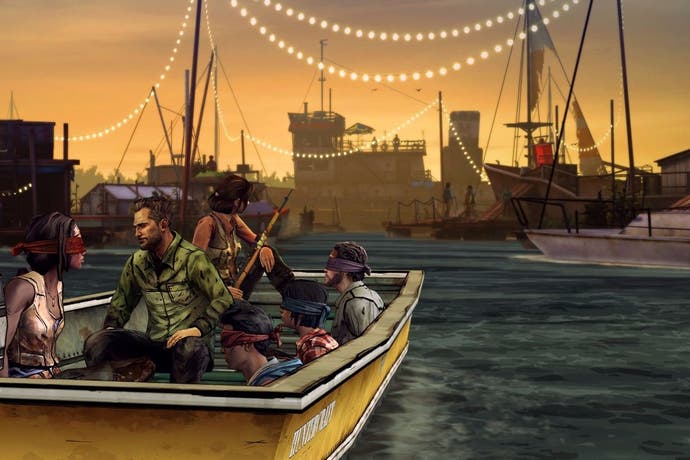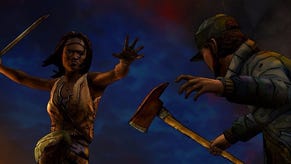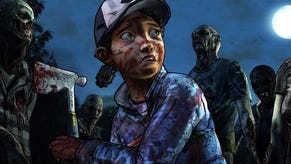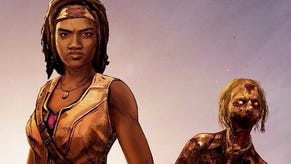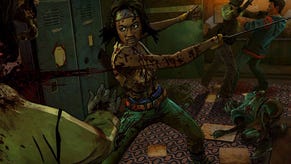The Walking Dead: Michonne is neither dead nor alive
Schrödinger's catastrophe.
The Walking Dead: Michonne begins with its titular character about to blow her brains out. After a surreal sequence suggesting her children were killed due to her own failure, Michonne is at the end of her tether. With nothing left to live for, she ends up adrift on a boat with a crew she hardly knows, languidly sailing the Southern bayou with no foreseeable destination, existing in an endless funk.
That's where we come in. The Walking Dead: Michonne puts us in the mindset of someone who wants to end it all. Where previous The Walking Dead seasons were based around the emotional charge of Lee Everett's relationship to surrogate daughter Clementine, or Clementine's own relationship to old friends Kenny and Christa, Michonne's only close connections are ostensibly dead before we even meet her. As such, her interpersonal relationships are severely strained, resulting in a less familial drama than you might expect from this spin-off series.
Michonne's weary drifter mentality is aided by the fact that this is the 11th episodes in Telltale's repertoire with no end in sight. By now the formula is routine. We know everyone who dies comes back as a zombie, regardless of cause, unless their brains are destroyed. We know any collective of outsiders poses a major threat and is not to be trusted. And we know that you'll frequently have to watch folks around you meet a grisly demise. With the earth's population in limbo between dead and undead, Robert Kirkman's world has never felt more like purgatory.
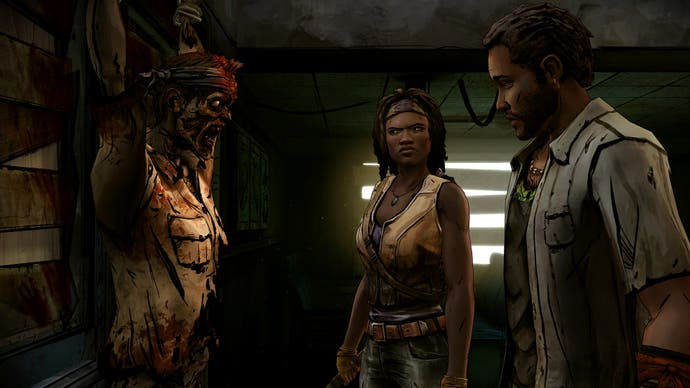
Where Michonne does manage to thrash its way out of this comatose state is in its mystery. Michonne often finds herself in a variety of horrific scrapes with other living denizens wherein trying to diplomatically explain her way out of dangerous situations results in no one believing her. Early on Michonne finds herself a prisoner of a collective that accuses her, among others, of stealing. It's not clear who did what, or why you're suspected by both your captors and fellow captives. This thick layer of distrust amongst its thinly developed (so far) cast adds a sense of Kafka-esque horror on top of the Romero-inspired ones.
It's a tight tangle of misunderstandings in a world where people are too weary for patience, and one wrong move can result in yourself or others getting tortured, killed, or - as is often the case in The Walking Dead universe - killed then tortured. With all the principle players being folks you've only spent a smattering of minutes with, it's a real challenge to decide who to make your allegiances with... even if they're only temporary.
And that's the point, I reckon. You're supposed to be distrustful of everyone. That The Walking Dead: Michonne creates such a palpable sense of paranoia is impressive, but it's at the cost of actually giving a damn about anyone. Whether the murky motivations of its cast are an intentional commentary on the series' length or a tepid by-product of it is anyone's guess, but the overall result is one that's a little tired, a little scary, and a little insubstantial. Telltale has two episodes left to give Michonne a purpose for going on. More importantly, it has to convince us that this series still has some fight in it.
